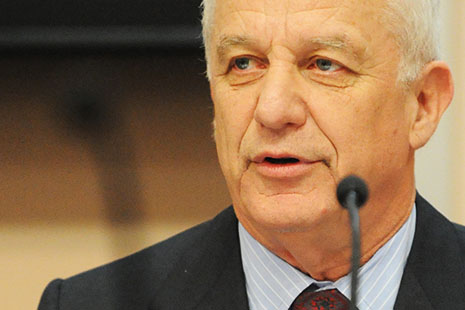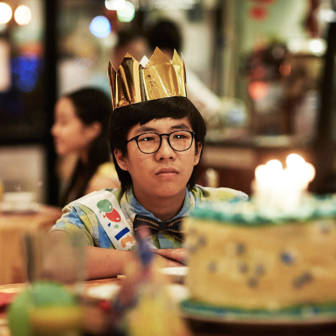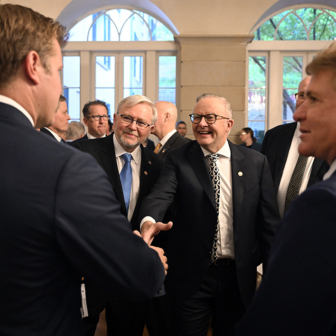IN THIS turbulent period for the Australian news media, many important issues are at stake – and none more so than the independence and future financial viability of journalism. But this vital debate has recently been reduced to an acrimonious fight about the Finkelstein inquiry’s proposal for a News Media Council. Faced with the possibility of an external body holding them to account, some media outlets have sought to pit journalists against academics who have expressed a view about the plan (and vice versa). This is a red herring that emphasises the personal and obscures the institutional problems and broader social and technological developments that are contributing to the industry’s problems.
The Australian has been at the forefront of debate. It employs some excellent journalists, publishes some insightful writing and has a very welcome commitment to national affairs, but it can also be so strident, defensive and bullying (and not just on this issue) that it is increasingly difficult to take seriously. Some of the paper’s journalists and commentators – and also some journalists at the Age, the Australian Financial Review, the Sydney Morning Herald and the tabloids – have taken up arms against Finkelstein’s proposal. Much of the hyperbole about “censorship,” “repression” and “state control” would be funny if it wasn’t such a poignant reminder that journalists are, all too often, their own worst enemies.
While they are romanticised as independent, truth-seeking crusaders who “hold power to account,” journalists in major news organisations actually work in a setting that is highly controlled, routinised and hierarchical. Compared to members of many other professions, they have very limited autonomy over their work. Perhaps partly as a result, history shows that journalists sometimes pick the wrong side of battles, mistaking their owner’s (or outlet’s) interests for their own. This can be embarrassingly evident – when a journalist repeatedly quotes his or her own boss as the major source for a story, for instance, leaving the strong impression that the journalist is being used as a mouthpiece for the editor’s or owner’s interests.
During the debate about the professionalisation of journalism in the 1970s and 1980s, for example, a range of possibilities for increasing the status and quality of the profession were canvassed. Among the most radical proposals was a call for licensing of journalists; at the other end of the spectrum were calls for journalists to engage in critical self-scrutiny of their profession, have strong, enforceable codes of ethics, and undertake external training or gain certain obligatory qualifications to practise journalism. Journalists were generally aghast even at the milder options and, in the end, they won that battle. But what this ultimately meant – that journalism remained largely a craft learnt inside media organisations and requiring no specific external training – was that journalists had no particular set of skills or knowledge that belonged to them as part of their profession. They could easily be replaced by someone brought in and trained on the job, and they were highly reliant on socialisation within news organisations for their training (which worked against that cherished journalistic principle of independence). Anyone could call themselves “a journalist” – and, with the digital age, they increasingly did; as a result, there is declining meaning attached to, or respect for, the status of journalists in news organisations.
Then, in the 1990s, media organisations, including journalists, resisted digitisation and online content. The attitude was almost one of “let’s ignore it and see if it goes away,” with the consequence that many organisations missed the early opportunities that the new technology offered and have since paid the price in declining audiences and revenues.
Now, in the debate over the Finkelstein recommendations, some journalists are fighting hard against any external oversight and thereby helping to marginalise themselves yet again. As the battles for press freedom going back to the seventeenth century show, there are good reasons for suspicion of regulation. But a knee jerk “no” to any form of external oversight of journalists’ work is counterproductive. If there was clear adherence to journalistic standards (even self-imposed standards), good internal processes of oversight, and appropriate scrutiny and openness, then no external oversight would be needed.
Some international newspapers have their own ombudsman or “readers’ advocate” or “public editor” who corrects errors, explains reporting, offers a right of reply and acts on behalf of readers and the public. These have been in place in some newspapers in other countries for over forty years. Where are the Australian equivalents? There’s just one, appointed by the Sydney Morning Herald in 2011. If Australian news organisations applied their own standards of conduct and performance consistently and adequately, external scrutiny wouldn’t be proposed or needed. Because they don’t, their credibility and reputations are suffering and they will struggle in the future (indeed they already are struggling) to retain increasingly educated readers who have high expectations and a much better awareness of how news media operate.
With all this in mind, let’s look at the myths and faulty logic being promoted by some news media organisations in the current debate.
Myth 1: Critical scrutiny is good, but only if journalists do it
Journalists are told they must always critically interrogate what they see and what they are told. They need to be independent and to be able to criticise and expose where necessary. But when academics or others apply this approach to analysing the media and the work of journalists, this becomes a problem for some news organisations: no longer are these values in the public interest, or necessary, or deserving of praise (see myths 2 and 3).
Myth 2: You need to work in journalism to understand how journalism works
This is a facile point as well as a myth. Being an outsider often aids understanding rather than hindering it – a point exemplified by the fact that many journalists have never worked in government or the public service but feel well-qualified (and so they should) to investigate these institutions and criticise their processes. Indeed, many journalists perpetually place themselves as critical outsiders – outside politics, government and business, outside power – in order to perform their work. That is the whole basis of critical detachment and the principles of neutrality and objectivity that have underpinned journalism for decades.
Myth 3: Even if you have worked in journalism in the past, you are still wrong
In the current debate, some of those who have supported greater scrutiny of media in Australia are former journalists with years, or even decades, of experience working in news organisations. But if their positions contradict the interests of powerful media organisations, they will still be attacked – albeit on other grounds (usually ideological; see myth 6).
Myth 4: Journalists work in journalism organisations
This myth is implicit in the debate, suggesting that journalists are only ever people who work in major news organisations and others are… well, “others.” Never stated overtly, this myth helps explain a tone that suggests the views of “former” journalists should be discredited. Never mind that the increasingly fluid boundaries of “journalism” see many academics contributing regularly to the news media and many private individuals writing what is, to all intents and purposes, excellent journalism.
Myth 5: Power is on the outside of media not on the inside
This is the biggest myth of all. “We scrutinise power,” journalists proclaim, but there is a strange failure to recognise that the media (as a collective) are just as influential (and arguably, much more so) than the hundreds of individual politicians sitting in parliaments across Australia. While there is a long history of journalists scrutinising politicians, who watches the watchers? (Apart from ABC1’s Media Watch, there are few regular, public outlets for media scrutiny in Australia.) The stories news outlets run and how they shape perceptions, the campaigns their outlets promote, the backroom wining and dining and wheeling and dealing that editors and owners engage in with politicians and corporate chiefs are all extraordinarily powerful factors in modern Australian life. So let’s all say this together: “The media is an extremely powerful institution – especially those major organisations that control up to three quarters of newspaper circulation and/or multiple cross-media interests. The media require scrutiny as well as exercising it.” When you work in a major news organisation, you are not outside power, you are sitting right in it.
Myth 6: Because there is no evidence of phone hacking here, there are no problems
Unless someone steps forward with new evidence, it seems that illegal phone tapping or hacking has not been practised by news media in Australia. But this doesn’t mean there are no problems. Last week, the Australian Financial Review reported on a four-year investigation which found that a “dirty tricks” unit inside News Corporation had promoted piracy in order to damage pay TV competitors (an allegation that News has strenuously denied). But the problems are broader than any anti-competitive behaviour. What the UK inquiry and other outlets (especially the Guardian) have revealed is the extent to which some individuals in politics, the government, the police and the media have been acting in close quarters and harbouring cosy networks of vested interests. In Australia, it is the close relationship between the political class and media outlets and owners that is the issue. We know it is the issue because of the fragments of evidence unearthed by people who’ve been brave or foolhardy enough, or retired long enough, to tell us about how the relationship really works. This is a more systemic issue and it isn’t as headline-worthy or sensational as the use of illegal methods of uncovering information, but its corrupting influence on political decision-making is no less important and it needs examining. So who is brave enough to investigate and report on it?
Myth 7: Media ownership – “nothing to see here”
The large media companies don’t like to talk about ownership and it is a taboo subject among their journalists as well (as some have revealed in anonymous surveys in the past). One of the problems with the reporting of the Finkelstein report is that the recommendations about regulation have overshadowed the biggest problem in the Australian market – the concentration of media ownership. Anyone who does talk about this is branded a left-winger (see myth 8).
Myth 8: All academics are against us and all academics who are against us are left-wing
As with some conservative politicians, some editors and commentators seem to believe that all of their critics are left-wing and that’s the source of their critiques. As an argument, it’s as shallow as it is convenient. Despite the perception being fostered in some outlets, far more unites academics and journalists than divides them. Most journalists understand why so many Australian academics who value journalism have concerns about the Australian media (for others, I’ll give a hint: it’s not because they are all left-wing), and they understand why so many of their former colleagues who go into academia and then have the freedom to speak out also express concerns (another hint: it’s nothing to do with Stockholm Syndrome). Many journalists voice those same concerns in private and anonymously; they just can’t do so in the outlets they work for (which puts the lie to those outlets posturing about the importance of “free speech”).
Myth 9: All academics who are interested in journalism teach journalism
Despite the reporting, not all of the lecturers involved in these debates are journalism lecturers. This error has been a launching pad for the argument that these media/journalism academics are corrupting the minds of future journalists by teaching them negative things about the media. (Here I’d note that if aspiring journalists can’t take some negativity, they are not going to last very long in journalism!) But the reality is that not all of those taking part in the debate are journalism lecturers, and the distinction is important. Across Australia, many academics are encouraging their students to study the media or journalism as part of their study of politics, sociology, philosophy, law, history, English, languages, criminology, education, science, medicine and other disciplines. And they are not the only ones. Popular culture is increasingly rich with critical, probing, sometimes cynical analysis of the news media. Think back even as far as ABC TV’s Frontline (1994–97). The media-analysis cat is well and truly out of the bag and yet somehow society still marches on despite the “negativity.”
Myth 10: Academics are experts but only when they say what we want to hear
Many media outlets are keen to have academics in their pages lending credibility and authority to analysis, but some want academics only to talk about topics that are not related to the outlet’s direct commercial interests. If they do otherwise, they are no longer welcome. Ultimately, media academics are the red herring in a strategy to shift the terms of debate and attack the attackers – to make it personal, make it uncomfortable and stifle debate.
Myth 11: Media accountability and media futures are separate
I’ll conclude by noting the myth that media accountability and media futures are somehow separate. The future of the news media in Australia is about much more than the Finkelstein report and its recommendations. In an era of immense change, some outlets are clinging to tired formulas. Some just don’t get it, or they will take time to get it.
Notably, of the academics who publicly supported the idea of a media inquiry and commended aspects of its report, most offered fairly cautious support about the report’s findings and many asked pertinent questions about implementation and how oversight should work. The Australian’s overblown attack in response reminded me of another of its extraordinary retaliations – against political blogs in 2007. When some bloggers dared to criticise the Australian and its political editor for their creative interpretation of opinion poll results, the Australian vehemently decried such blogs as parasitic and a “waste of time.” But, three years later, the Australian hired one of those bloggers – Peter Brent, editor of Mumble – and now promotes his analysis of opinion polls on its website.
Even old dogs can learn new tricks in a new media world. And they do better when they try to learn and adapt rather than relying on bullying, intimidation and self-interest expressed as freedom of the press. •




